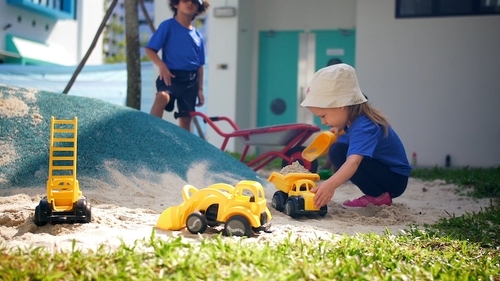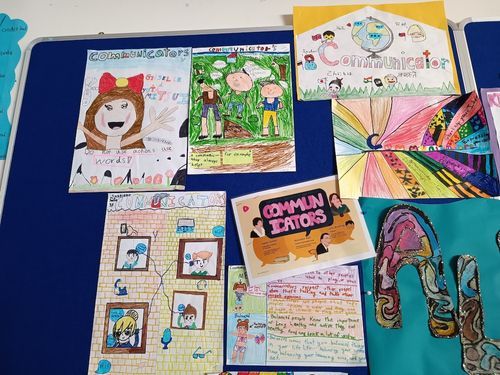Play is essential for young children’s cognitive, social, emotional and physical development. Yet its importance is often underestimated. As research increasingly points to the many benefits of learning through play, forward-thinking educators and school administrators have found ways to make it a core part of the Early Years curriculum. At One World International School, play is a fundamental part of our Early Childhood programme at our Nanyang campus.
What Is Learning Through Play?
Play takes many forms and helps children acquire skills that lay the groundwork for the rest of their school years and beyond. Play is sometimes dismissed as frivolous, but it is the primary means by which young children learn. Involving children in free and guided play from a young age has numerous benefits to their overall development.
Why Is Learning Through Play Important for Early Learners?
Play gives children an early foundation for key concepts. When building towers of blocks, children learn about gravity, shapes and balance. Classmates cooking together in a play kitchen discover spatial concepts and gain fine motor skills.

Providing an environment that encourages play and hands-on learning is the backbone of an inquiry-led, play-based curriculum, such as the preschool programme at OWIS.
What Are the Skills Developed During Play?
Play-based nursery and kindergarten programmes allow children to explore the world around them at their own pace and in their own way. The AAP also notes that learning through play equips children with skills that will serve them well in the years to come. For instance, running a ‘pretend’ store improves children’s verbal skills as they describe their “merchandise” and how to organise it.
Play fosters collaboration, creativity and problem-solving, too. Engaging in make-believe and imitating the everyday activities of the adults around them empowers children to take risks and learn through trial and error.
Play can even foster literacy and maths skills. For example, students running a pretend restaurant may design menus and devise ways for customers to pay for their food.
While play can be challenging to define, it has several characteristics that nearly everyone can agree on. Play is joyful, engaging and socially interactive. As children participate in imaginary scenarios to make sense of the world around them, they incorporate a variety of different skill sets and are deeply involved in what they are doing.
What Does Learning Through Play Look Like at OWIS?
Our Early Childhood area at our Nanyang campus feature open-concept classrooms. Students move among different activities and learning centres to build skills in phonics and reading, writing and maths. Various sensory activities and materials nurture student agency. For instance, our art areas give students choices about the materials they engage with, such as clay, water and paint. Play equipment (such as our pretend kitchen) is built-to-scale, giving students the freedom to explore and gain concepts on their terms.

Play: An Essential Strategy for Teaching, Learning and Student Agency
At OWIS, our preschool students participate in free and guided play. Free play is flexible, voluntary, and of course, fun. With guided play, teachers ask questions and provide guidance while still keeping play centred around children’s interests, so they have some autonomy. Guided play enables educators to teach specific skills without needlessly limiting student agency. Teachers design play-based activities so students can find their voice, make decisions and ultimately take ownership of their learning.
Play at school, at home and in the community is vital for early childhood development, as researchers, teachers and parents can attest to. Opportunities for free and guided play enable children to take actionable steps toward initiating and directing their learning. To learn more about our early childhood programme at OWIS get in touch with us or schedule a campus tour.
Please note: All the images in this blog were taken in pre-Covid times.















